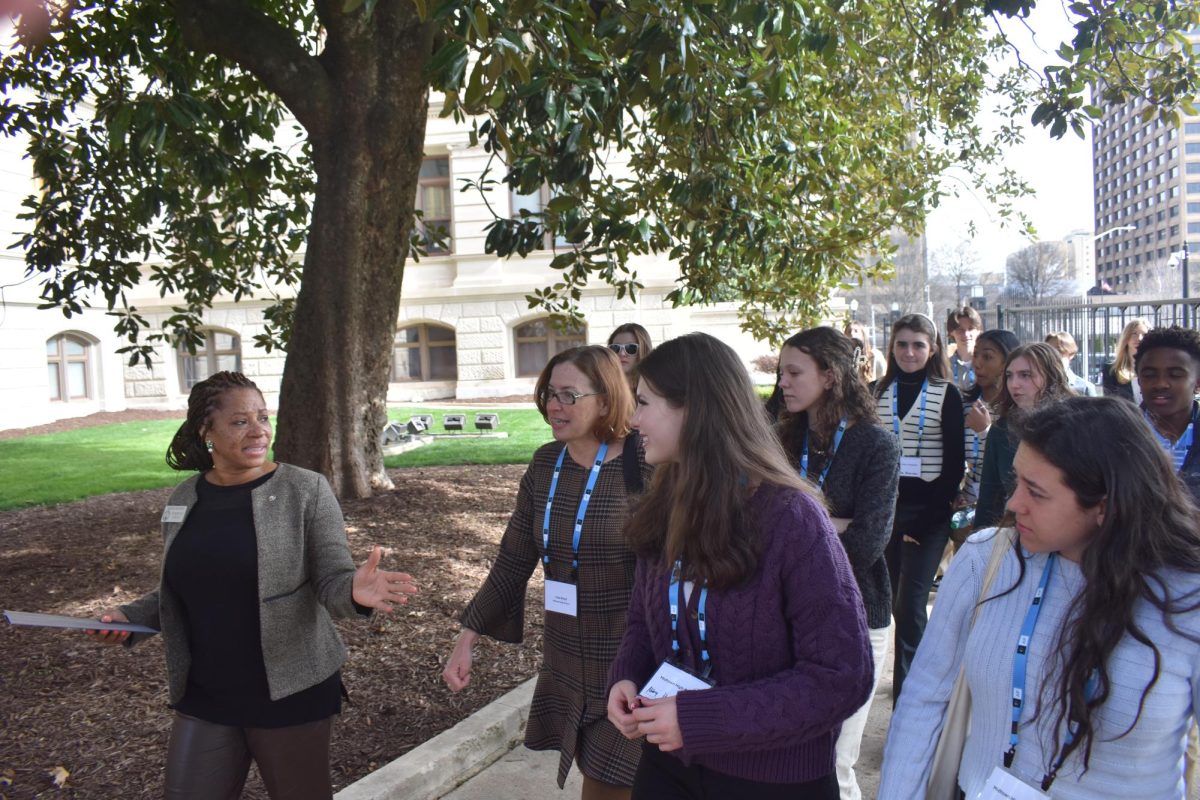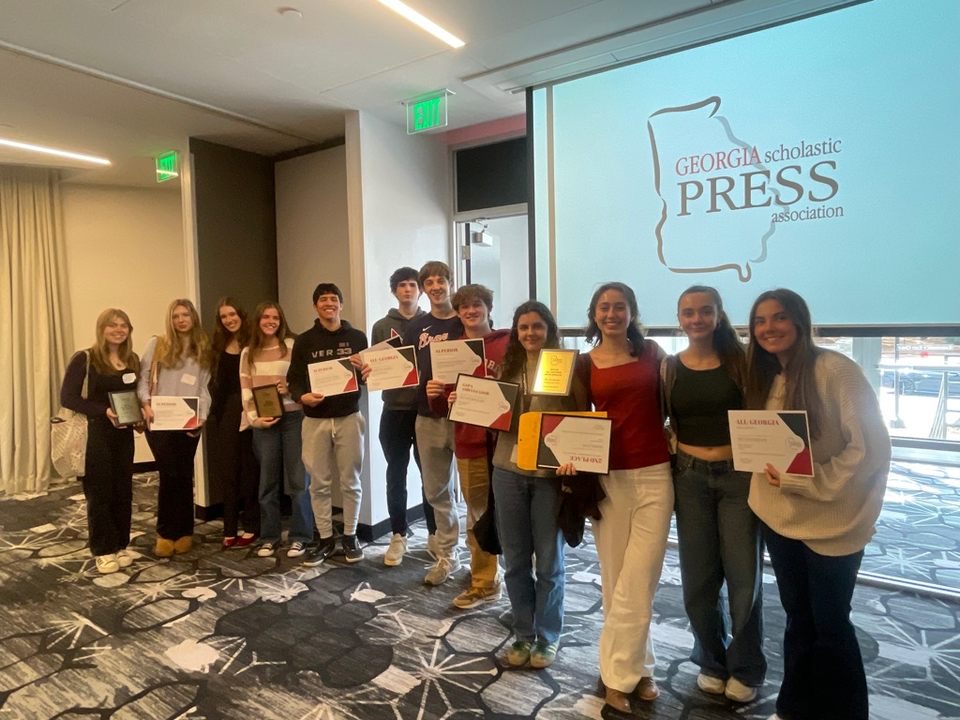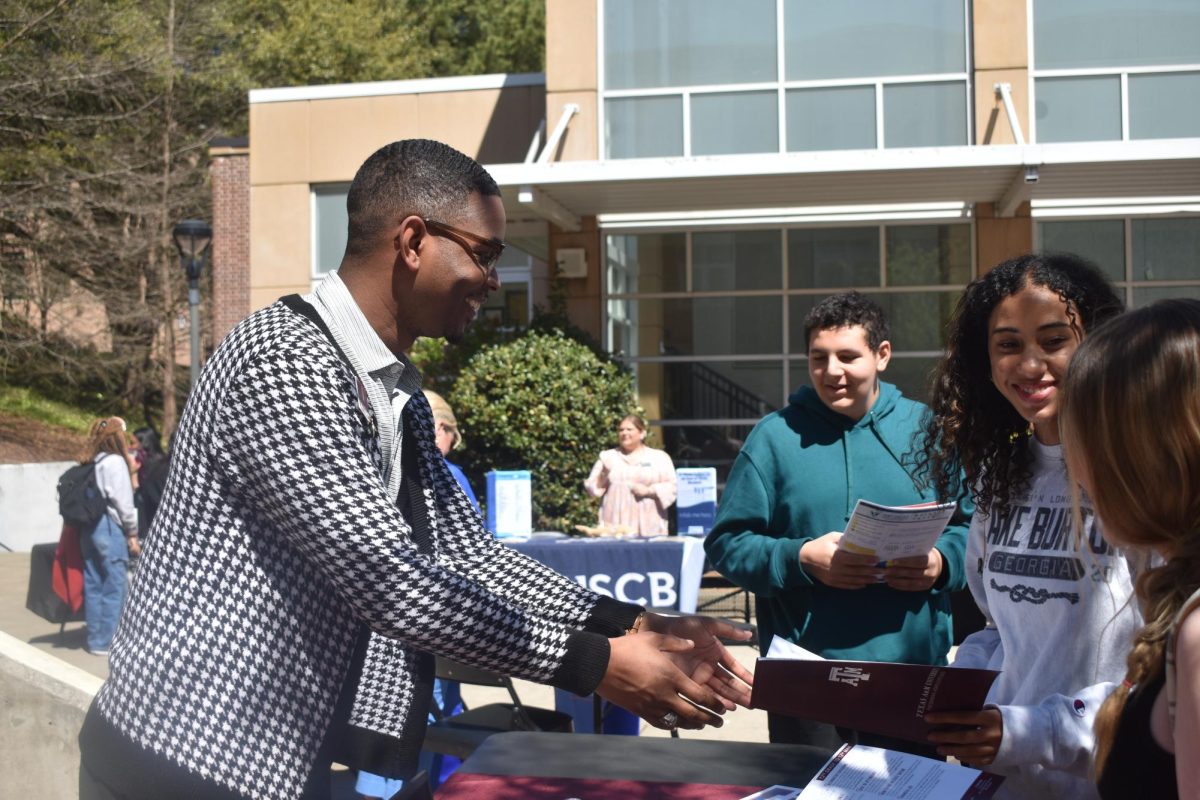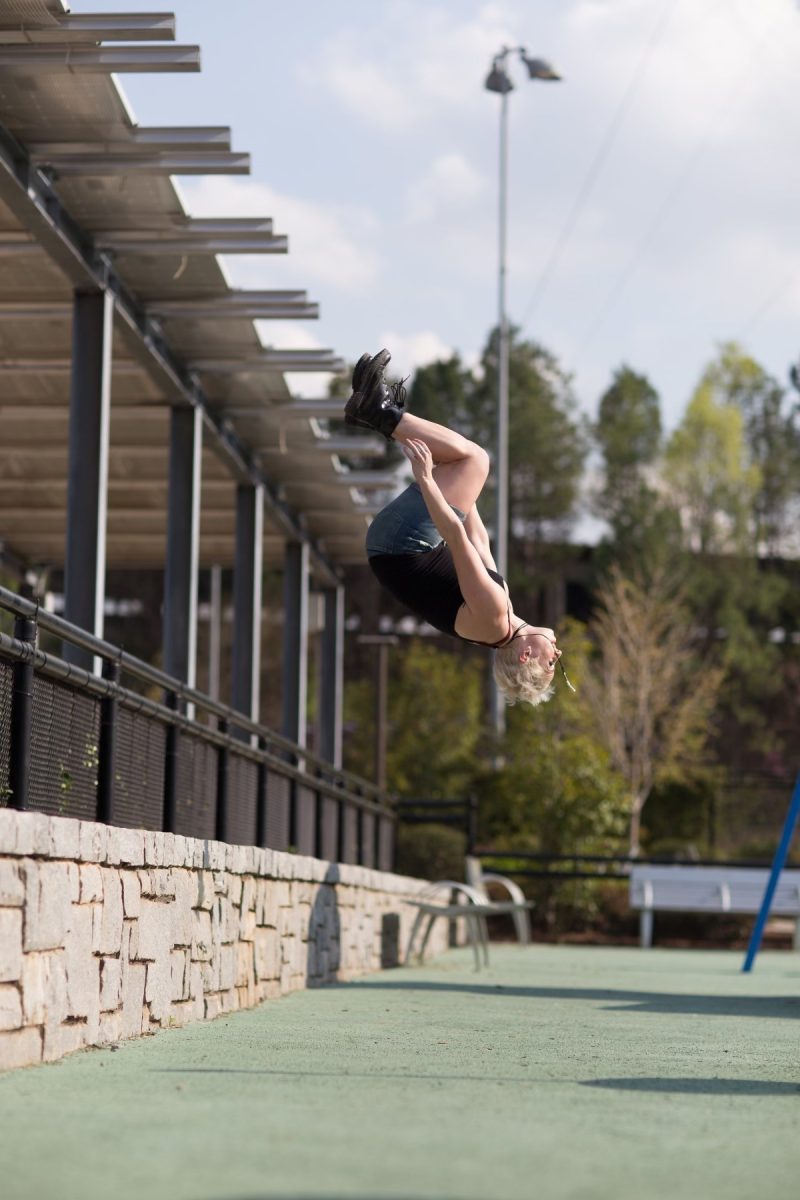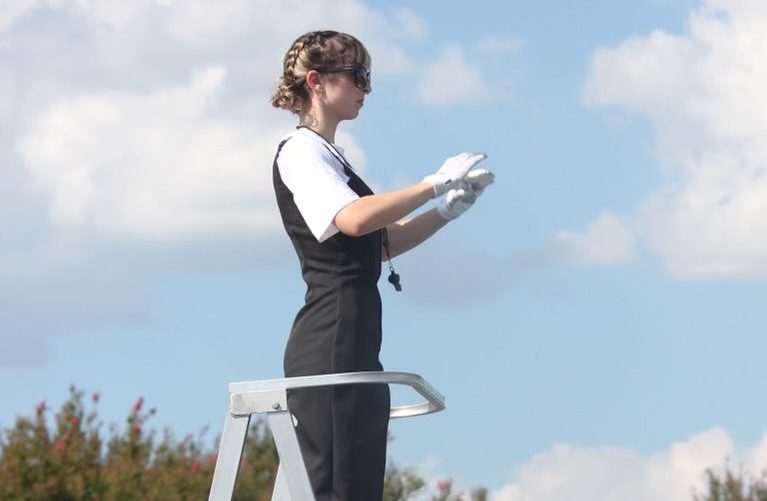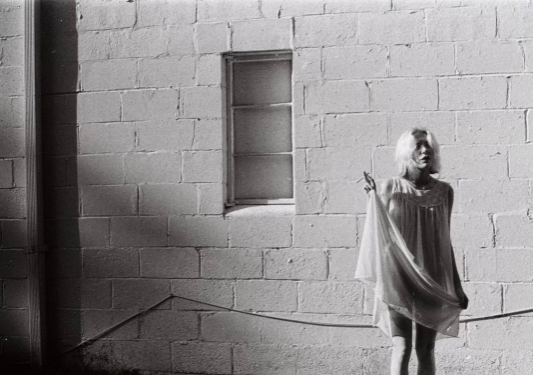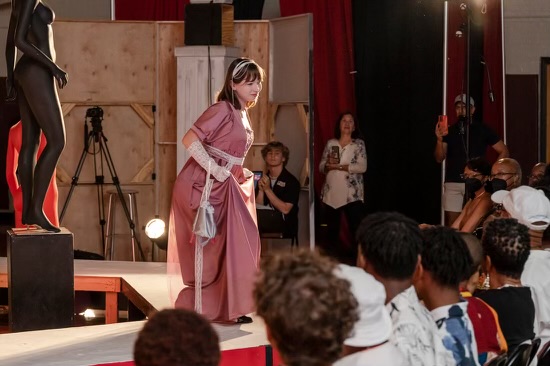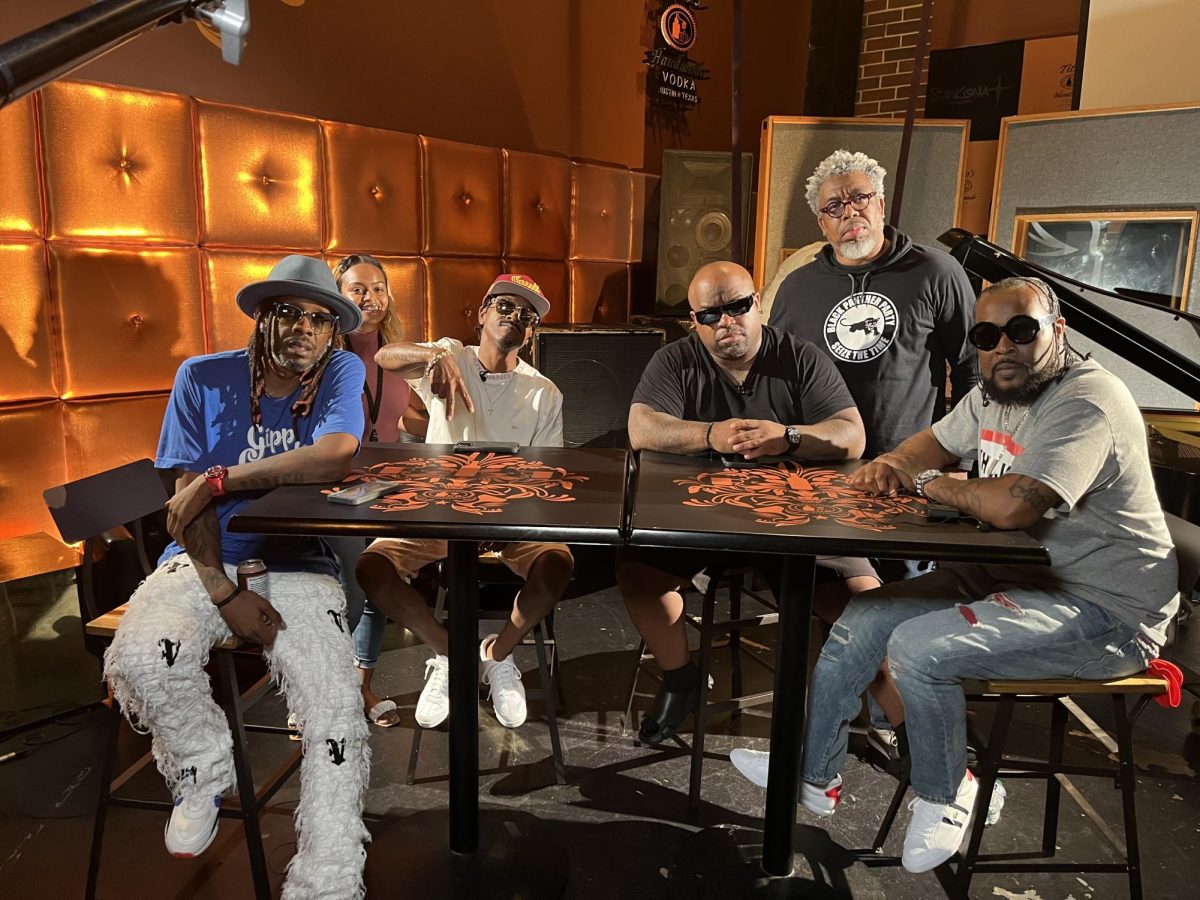
By Reilly Blum
Inside the large, rectangular room, a conductor signals to the first violin players. They start a tricky chorus of sixteenth notes, while the cellos and basses play a lively harmony. The sound swells to fill the room as the music reaches a crescendo. The conductor is energetic, moving his arms quickly to give the correct cues and keep with the time of the piece. As he makes the signal for the last note to break off, he smiles and congratulates his students for such a successful run.
Sergio Rodriguez, Grady’s orchestra teacher, says that he doesn’t think of himself as someone who trains artists. “I feel like my job with my students is to make them happy,” he said. “I want them to feel special, because I do believe that every one of my students is special. Music makes them beautiful.”
Rodriguez, who emigrated from Honduras when he was a young man, has been passionate about music since he was a boy.
“I lived in a poor neighborhood,” he said. “Once we became teenagers, we experienced drugs and alcohol. Most of my friends were drinking by the time they were 12 years old, because they didn’t have that nuclear family to support them. When I was about ten years old, my parents split, and that was very hard for me. But at that time, music found me.”
Rodriguez’s parents recognized his musical talents and enrolled him at a music conservatory near his home. “Music helped me to see the world, that there was more than I had in that environment. I didn’t think about it when I was a kid, but it helped me to focus on the future.”
Rodriguez played concerts in large cities, and was able to experience a different life than what he had known before. He said that he often stayed in hotels or wealthy people’s houses.
Eventually, Rodriguez moved back to his hometown. He said that many of his neighbors had died of alcoholism, AIDS, and other issues. “Those who stayed [in my hometown] couldn’t survive. I was one of the few, who, thanks to music, was able to leave that environment,” he said.
To become skilled enough to play for competitive orchestras, Rodriguez said that he had to practice music all day long. In graduate school, Rodriguez had to wake up at four in the morning to practice his violin. He squeezed twelve hours of violin practice into his day, somehow managing to teach in the evenings and complete his work.
“I didn’t have that choice, to be mediocre,” he said. “I didn’t have any money to pay for schooling here. The only thing I had was my talent, and so I worked hard to get scholarships.”
This determined work ethic is a large part of his teaching- Rodriguez pushes all of his students hard to become accomplished musicians. He requires his lowest level students to practice their instruments at least three hours per week outside of school. Practice times increase with skill level, so that his most advanced students may be practicing up to three hours per day.
Not only does Rodriguez teach his students more about the instruments they play, he also teaches them difficult music theory and history. Sophomore James Winer said that his playing level increased exponentially last year.
Because senior Leslie Lang plays piano, which doesn’t have a part for every piece, Rodriguez is teaching her to conduct. “I love how I’m learning more about music, not just my instrument,” Lang said.
Freshman Naya Arnold is new to Grady’s orchestra, but she says that Rodriguez has already made her feel comfortable at Grady.
“Mr. Rodriguez lets us work independently in the practice rooms. Sometimes he works with us individually to help us with our bowing and intonation. He’s very supportive,” she said. “He reminds us every day to practice our music at home.”
It’s no wonder Rodriguez is so keen on-out-of school practice- nearly every morning he’s practicing in the halls before school begins.
“Every holiday I have, I practice,” he said. “If I have nothing to do during my planning period, I practice. At 7:30 in the morning, I am here practicing before my students come.”
Rodriguez says that he knows what it takes to teach his students how to master their instruments because he’s been teaching for so long. At only eighteen years old, he became a teacher “by accident” at the music conservatory he attended as a boy.
“I was very effective with my students when I was younger. I had a beautiful mane, long hair,” he said, running a hand over his smooth, bald, head. He chuckled. “Where did it all go?”
Rodriguez’s playful sense of humor about his hair continues to amuse his students. “He likes to joke about how he doesn’t have a lot of hair,” Arnold said. “One time, when we were preparing for a concert, he said, ‘You know, back in my day, when I was really hot, I had hair up to the ceiling!’ It was really funny.”
“Mr. Rodriguez has a lot of inside jokes with his students,” said Lang. “It’s the kind of thing that if it isn’t very funny at first, it’ll eventually become funny because he’ll tell it to you over and over.”
“He always tells funny stories about his childhood in Honduras. He likes to use his accent as a mechanism to make jokes,” Winer said.
Before he came to Atlanta, Rodriguez lived in Albany. He moved to the Atlanta area so that his young daughter would be able to benefit from the opportunities that come with living in a city.
“I wanted to work in an environment with diversity, that wouldn’t mind my southern accent,” said Rodriguez, chuckling. “I wanted to work somewhere that will appreciate me, because I am good at what I do, and not for my skin color or my accent. When I came to Grady, it was the best thing that happened to me because I felt like, ‘Oh, this is my home.”



